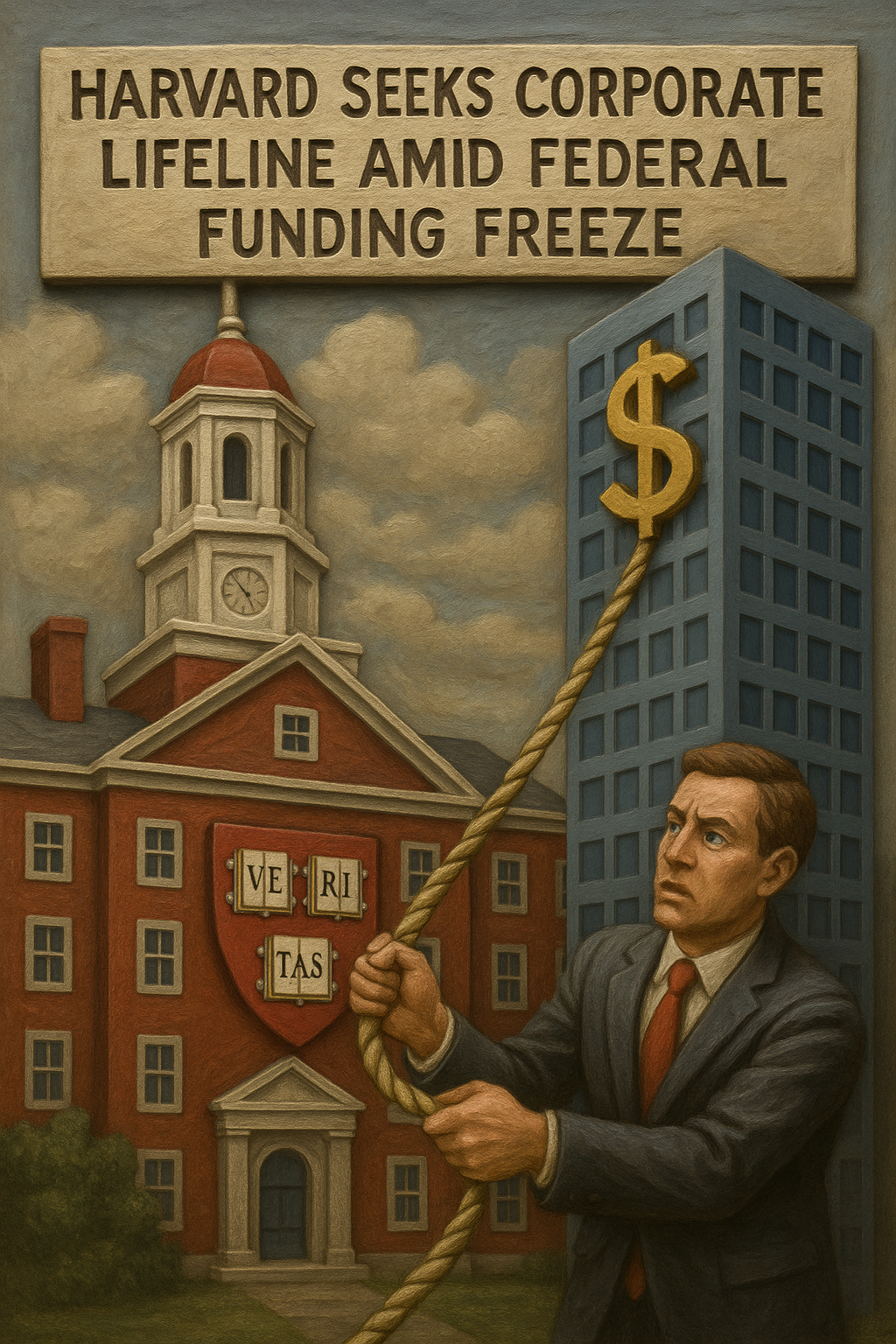Harvard Seeks Corporate Lifeline Amid Federal Funding Freeze
In a bold move to counteract the Trump administration's suspension of over $2.2 billion in federal grants and contracts, Harvard University is turning to corporate partnerships to sustain its research initiatives. The funding freeze, initiated in April 2025, came after Harvard refused to comply with federal demands to curb campus activism and revise certain policies. ([npr.org](https://www.npr.org/2025/05/01/nx-s1-5369448/universities-harvard-private-donors-trump?utm_source=openai))
Harvard President Alan Garber announced that the university will allocate $250 million of its own funds to support research activities for the upcoming year. However, Garber acknowledged that this is a temporary measure and emphasized the need for alternative funding sources to maintain long-term research operations. ([apnews.com](https://apnews.com/article/560292a39b4ec4fe473ed1f91d89f556?utm_source=openai))
To bridge the financial gap, Harvard is actively seeking collaborations with major corporations. The university is in discussions with tech giants such as Apple, Microsoft, and Google, exploring potential partnerships that could provide substantial financial support. These collaborations aim to fund critical research projects in fields like artificial intelligence, biotechnology, and environmental science.
Critics argue that Harvard's reliance on corporate funding may compromise academic independence and lead to conflicts of interest. However, university officials assert that stringent guidelines will be implemented to ensure that research integrity remains uncompromised.
The Trump administration's funding freeze has sparked a broader debate about the role of federal funding in higher education and the autonomy of academic institutions. While some view the administration's actions as necessary to enforce policy compliance, others see it as an overreach that threatens academic freedom.
As Harvard navigates these financial challenges, the outcome of its corporate partnership strategy may set a precedent for other universities facing similar funding dilemmas.
